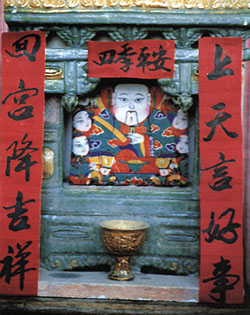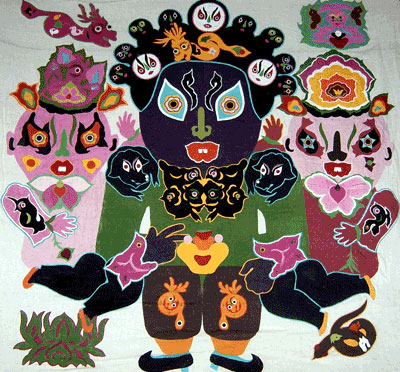
Chinese New Year customs vary across the length and breadth of China due to the country's geographic, demographic and ethnic diversity. But the underlying spirit -- a common feeling of peace and happiness surrounded by loved ones -- remains the same throughout.
Traditionally, the Spring Festival starts a week ahead of the Chinese New Year (the 23rd of the last month in Chinese lunar calendar), marked with a ceremony of offering sacrifice to the Kitchen God, sent from Heaven to each family to oversee their affairs and report to Heaven on the family's actions over the past year, on the 23rd.
On this day, images of the Kitchen God are burned as a symbolic act of departure, often accompanied burned along with some gold or silver money for traveling expenses. In some households, the lips of the Kitchen God will be lightly brushed with honey or sugar prior to its immolation, to ensure sweet things are said by the Kitchen God. From the 24th the Kitchen God will be removed from the kitchen shrine in the kitchen, and cleansed ahead of his return on New Year's Eve. Although this tradition has widely become abandoned in cities, it remains popular in rural areas.


(China.org.cn January 7, 2009)